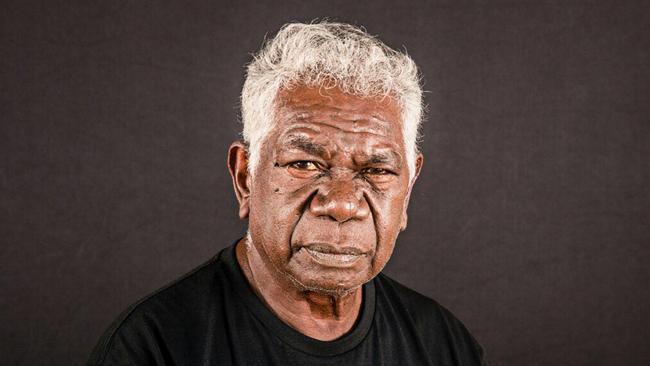The Australian’s Australian of the Year: Djawa Yunupingu leads where his brother left off
Djawa Yunupingu has worked all his life for the clans of northeast Arnhem Land. Now, in the wake of his respected brother’s death, he has emerged as a unifier to lead his people.

Djawa Yunupingu has worked all his life for the clans of northeast Arnhem Land – the Yolngu he describes as “economic beings”.
The death of his older brother in April 2023 – the land rights giant known now by the family name Yunupingu – was a juncture with the potential to destabilise Yolngu clans.
There were fears that some of their achievements could unravel, including a form of autonomy not seen elsewhere in remote Australia.
However, Yunupingu chose Djawa to lead two key institutions – Gumatj Corporation and the Yothu Yindi Foundation – and the mission-born younger brother has emerged as a unifier with clear ideas and a pragmatic approach.
Djawa spoke plainly about the hurt of rejection that his people felt when fellow Australians said no to an Indigenous voice in the Constitution.
It was a proposal Yunupingu worked for and was talking about even in his final days.
However Djawa, the latest nominee for The Australian’s Australian of the Year, became the first of the voice’s high-profile Indigenous supporters to press the need to move on.
At the Garma Festival at Gulkula in August 2024, Djawa delivered a speech that confirmed him as Yunupingu’s political successor.
“What happened on 14 October 2023 is in the past now. We must let the world turn and set itself right, trust in each other, work together and believe in the future,” he said.
Djawa’s speech was more rallying cry than capitulation.
“Yolngu people are not dismissed by a single event,” he said. “You may have heard us say: ‘Look up to the future.’ Or ‘Gurtha-wuma Worrk-gu.’
“These are not play words, this is what we believe, and we choose to look forward, not back, despite what has been done and despite the pain caused to us.
“We sought a pathway to unity and we still seek it.
“We know that after the fire comes renewal. And that goodness rises in the country after the fire has burnt the land.”
Djawa continues to advance Yolngu interests, which include a bauxite mine in partnership with Rio Tinto.
They harvest and mill timber from rehabilitated mines that they then use to build their own houses. They have a unique 99-year lease over the township of Gunyangara, where local Aboriginal people are employed as maintenance crew.
They bypassed the often-troubled Northern Territory school system to create their own bilingual primary school in partnership with the elite Barker College in Sydney.
Djawa now leads plans for the Garma Institute to guide Yolngu students through their high school and tertiary years. He hopes it can be a model for higher learning in remote Australia.
“We need to continue to promise ourselves to the future of our children,” Djawa said.
Djawa’s sophisticated advocacy for the remote north of Australia combines human rights arguments with economic modelling and even national security.
“We do all these things, but still we lack an all-weather road to Darwin. We still lack port infrastructure that will allow us viable sea trade,” Djawa said in his Garma speech last year as Anthony Albanese watched on.
“Our communities lack proper water and sewerage, and our power networks are unregulated and fail too often. All around Arnhem Land the barge landings are collapsing.
“If we are to be secure in the north of Australia together then we need effective partnerships with you, Prime Minister, and we need government to fully play its role.”




To join the conversation, please log in. Don't have an account? Register
Join the conversation, you are commenting as Logout